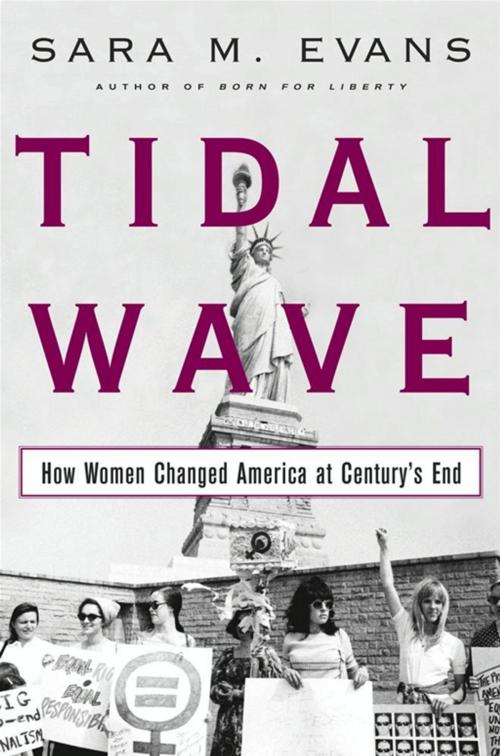Tidal Wave
How Women Changed America at Century's End
Nonfiction, Social & Cultural Studies, Social Science, Gender Studies, Women&, History, Americas, United States| Author: | Sara Evans | ISBN: | 9781439135532 |
| Publisher: | Free Press | Publication: | May 11, 2010 |
| Imprint: | Free Press | Language: | English |
| Author: | Sara Evans |
| ISBN: | 9781439135532 |
| Publisher: | Free Press |
| Publication: | May 11, 2010 |
| Imprint: | Free Press |
| Language: | English |
Forty years ago few women worked, married women could not borrow money in their own names, schools imposed strict quotas on female applicants, and sexual harassment did not exist as a legal concept. Yet despite the enormous changes for women in America since 1960, and despite a blizzard of books that continue to argue about women's "proper place," there has not been a serious, definitive history of what happened -- until now.
Sara M. Evans is one of our foremost historians of women in America. Her book Personal Politics is a classic that captured the origins of the modern women's movement; its successor, Born for Liberty, set the standard for sweeping histories of women. In Tidal Wave Evans again sets the standard by drawing on an extraordinary range of interviews, archives, and published sources to tell the incredible story of the past forty years in women's history.
Encompassing both the so-called Second Wave of feminism's initial explosion in the 1960s and 1970s, and the Third Wave of the 1980s and 1990s, she challenges traditional interpretations at every step. She shows that the Second Wave was beset by fragmentation and infighting from the beginning; its slogan, "the personal is political," was both a rallying cry and the seed of its self-destruction. Yet the Third Wave has been surprisingly strong, and almost all women today might be thought of as feminists -- in practice if not in name.
From national events, and from leaders of institutions such as NOW and Emily's List to little-known local stories of women who simply wanted more out of their lives only to discover that they were creating a movement, Tidal Wave paints a vast canvas of a society in upheaval -- from politics to economics to popular culture to marriage and the family.
Today, Evans argues, the women's movement is as alive and vital as ever, precisely because it has enjoyed such stunning success. Though not all women are comfortable with the term "feminist," the vast majority hold jobs and enjoy previously unimaginable personal freedoms. Never before in American or world history have women experienced full and equal citizenship and opportunity. At last, the extraordinary story can be told.
Forty years ago few women worked, married women could not borrow money in their own names, schools imposed strict quotas on female applicants, and sexual harassment did not exist as a legal concept. Yet despite the enormous changes for women in America since 1960, and despite a blizzard of books that continue to argue about women's "proper place," there has not been a serious, definitive history of what happened -- until now.
Sara M. Evans is one of our foremost historians of women in America. Her book Personal Politics is a classic that captured the origins of the modern women's movement; its successor, Born for Liberty, set the standard for sweeping histories of women. In Tidal Wave Evans again sets the standard by drawing on an extraordinary range of interviews, archives, and published sources to tell the incredible story of the past forty years in women's history.
Encompassing both the so-called Second Wave of feminism's initial explosion in the 1960s and 1970s, and the Third Wave of the 1980s and 1990s, she challenges traditional interpretations at every step. She shows that the Second Wave was beset by fragmentation and infighting from the beginning; its slogan, "the personal is political," was both a rallying cry and the seed of its self-destruction. Yet the Third Wave has been surprisingly strong, and almost all women today might be thought of as feminists -- in practice if not in name.
From national events, and from leaders of institutions such as NOW and Emily's List to little-known local stories of women who simply wanted more out of their lives only to discover that they were creating a movement, Tidal Wave paints a vast canvas of a society in upheaval -- from politics to economics to popular culture to marriage and the family.
Today, Evans argues, the women's movement is as alive and vital as ever, precisely because it has enjoyed such stunning success. Though not all women are comfortable with the term "feminist," the vast majority hold jobs and enjoy previously unimaginable personal freedoms. Never before in American or world history have women experienced full and equal citizenship and opportunity. At last, the extraordinary story can be told.















